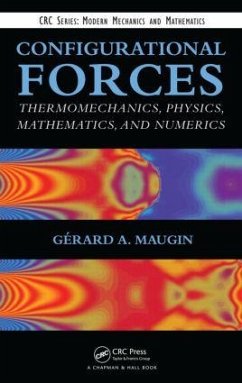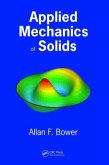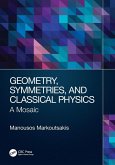Exploring recent developments in continuum mechanics, Configurational Forces: Thermomechanics, Physics, Mathematics, and Numerics presents the general framework for configurational forces. It also covers a range of applications in engineering and condensed matter physics.
The author presents the fundamentals of accepted standard continuum mechanics, before introducing Eshelby material stress, field theory, variational formulations, Noether's theorem, and the resulting conservation laws. In the chapter on complex continua, he compares the classical perspective of B.D. Coleman and W. Noll with the viewpoint linked to abstract field theory. He then describes the important notion of local structural rearrangement and its relationship to Eshelby stress. After looking at the relevance of Eshelby stress in the thermodynamic description of singular interfaces, the text focuses on fracture problems, microstructured media, systems with mass exchanges, and electromagnetic deformable media. The concluding chapters discuss the exploitation of the canonical conservation law of momentum in nonlinear wave propagation, the application of canonical-momentum conservation law and material force in numerical schemes, and similarities of fluid mechanics and aerodynamics.
Written by a long-time researcher in mechanical engineering, this book provides a detailed treatment of the theory of configurational forces-one of the latest and most fruitful advances in macroscopic field theories. Through many applications, it shows the depth and efficiency of this theory.
The author presents the fundamentals of accepted standard continuum mechanics, before introducing Eshelby material stress, field theory, variational formulations, Noether's theorem, and the resulting conservation laws. In the chapter on complex continua, he compares the classical perspective of B.D. Coleman and W. Noll with the viewpoint linked to abstract field theory. He then describes the important notion of local structural rearrangement and its relationship to Eshelby stress. After looking at the relevance of Eshelby stress in the thermodynamic description of singular interfaces, the text focuses on fracture problems, microstructured media, systems with mass exchanges, and electromagnetic deformable media. The concluding chapters discuss the exploitation of the canonical conservation law of momentum in nonlinear wave propagation, the application of canonical-momentum conservation law and material force in numerical schemes, and similarities of fluid mechanics and aerodynamics.
Written by a long-time researcher in mechanical engineering, this book provides a detailed treatment of the theory of configurational forces-one of the latest and most fruitful advances in macroscopic field theories. Through many applications, it shows the depth and efficiency of this theory.
"... an excellent introduction into this wide branch of mechanics, and, at the same time, it provides scientists already involved in the field extended references to specific aspects of Eshelbian mechanics. On an equal level, the thermomechanics, physics, mathematics and numerics of configurational forces are covered. Starting with elastic bodies, the theory is extended step-by-step to complex and generalized continua. Discontinuities of various kinds, fracture, moving interfaces, wave motion, etc., are treated, and elastic, elastoplastic, elastomagnetic and thermoelastic materials are discussed. The huge amount of material is arranged in a clear and rigorous manner. This is a book of a master in his field."
- Reinhold Kienzler (Bremen), Zentralblatt MATH
The book is indeed written by a true master of his field and is thus great fun to read and to study. It is of interest not only for specialists in configurational forces but for all those who are concerned with the broad field of continuum modeling. It is for example amazing to see how apparently dissimilar fields such as e1ectro-magneto-mechanics and biological growth or nonlinear waves are connected by the underlying and thus unifying concept of configurational forces. The book is extremely rich in detail and depth; at the same time it will be helpful for the beginner and the expert alike. In summary I assess that this is one of the few books that should be on the bookshelf of any researcher in mechanics and/or applied mathematics.
- MATHEMATICAL REVIEWS
- Reinhold Kienzler (Bremen), Zentralblatt MATH
The book is indeed written by a true master of his field and is thus great fun to read and to study. It is of interest not only for specialists in configurational forces but for all those who are concerned with the broad field of continuum modeling. It is for example amazing to see how apparently dissimilar fields such as e1ectro-magneto-mechanics and biological growth or nonlinear waves are connected by the underlying and thus unifying concept of configurational forces. The book is extremely rich in detail and depth; at the same time it will be helpful for the beginner and the expert alike. In summary I assess that this is one of the few books that should be on the bookshelf of any researcher in mechanics and/or applied mathematics.
- MATHEMATICAL REVIEWS








